
Connectivity focuses on all things related to diversity, equity, and inclusion (DEI) across Pennsylvania’s State System of Higher Education. The publication will highlight thought leaders, promising initiatives, and other actions that promote diverse, equitable, and inclusive policies and higher education practices across the Commonwealth and beyond. Connectivity will be informative, inclusive, thought-provoking, and focused.
Content Editor
Greetings PASSHE Community!
I am delighted to share the Office of Diversity, Equity, and Inclusion’s November 2021 edition of Connectivity. Once again, it contains interesting and promising stories that highlight how DEI “lives” throughout the State System as we remain committed to ensuring accessibility and championing the success of all members of our beloved community regardless of identity or starting place in life, while we endeavor to become a national model for inclusive excellence in higher education.
Here are some highlights from the fall:
Board of Governors Meeting
It’s always a pleasure to sit with the Board of Governors and report on the progress the State System is making toward creating academic environments where all students can achieve their dreams and aspirations regardless of their starting point in life. Here is a condensed version of that report:
We have established and convened a DEI Action Network comprised of faculty, Chief Diversity Officers, Chief Information and Technology Officers, Chief Academic Officers, Chief Administration and Finance Officers, Chief Student Affairs Officers and others to make progress on our five strategic priorities 1) Faculty, Staff, and Student Diversity; 2) Equitable Student Outcomes; 3) Inclusive Communities; 4) Curriculum Diversity; and 5) Enabling Infrastructures. The Action Network convened a strategy retreat on the campus of Shippensburg University October 3-5 to advance this important work. It was a productive gathering of systemwide dedicated colleagues.
While we will continue to focus on all of our strategic priorities, I am encouraged
about the energy to move the needle toward creating inclusive communities, expanding
curriculum diversity, and building enabling infrastructures, while being reminded
that all of the aforementioned strategic priorities are connected and are key to system
redesign, sustainability, and workforce development.
Systemwide Working Group, DEI Training and Climate Survey
The Working Group on Understanding the First Amendment and Title VI of the Civil Rights Act
to Improve Campus Climates: This group completed its work last month and President Ken Long (East Stroudsburg
University) continues to lead efforts to implement recommendations made by the representative
group of faculty, staff, students, and other stakeholders.
Systemwide DEI Training for Students, Faculty, and Staff: This systemwide effort launched in April 2021, in response to faculty, student, and staff requests, continues across the State System as part of a larger effort undertaken to improve campus climates. A full report of completion rates disaggregated by universities will be available at the end of the spring semester. I am proud to boast a near 100 percent completion rate in the Office of the Chancellor.
Systemwide Climate Survey: Dr. Emily Howe is leading the effort to administer the first ever systemwide campus climate survey using a third-party vendor to ensure anonymity. Customized surveys will be administered to students, faculty, and staff in an effort to gather important information about how these groups experience the State System and to inform efforts to make improvements as indicated by the data. This is an important systemwide initiative towards improving campus climates.
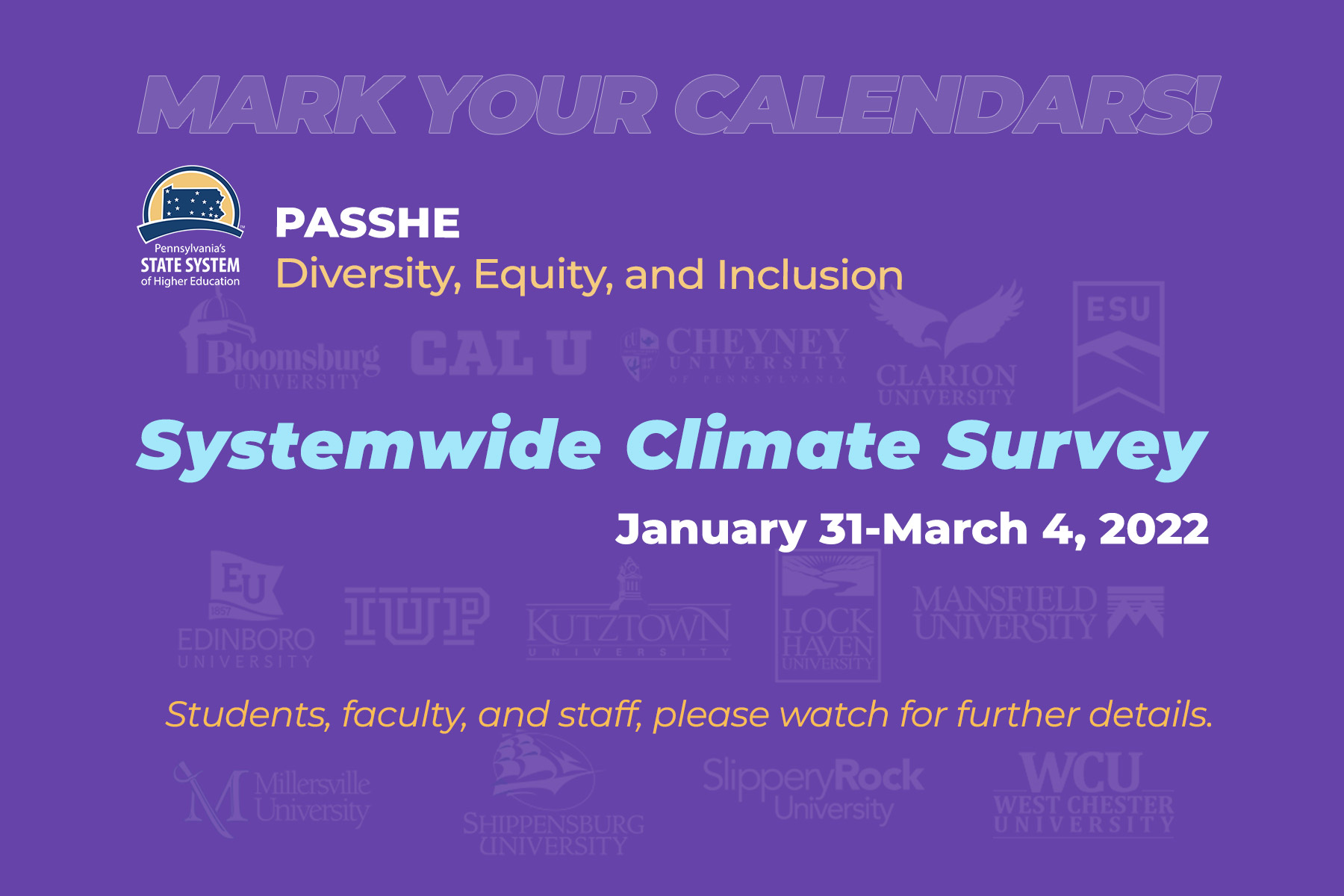
Curriculum Diversity
I am especially encouraged by conversations with the State System’s Faculty Council chaired by Dr. Jamie Phillips (Clarion University). We are committed to working together so that curriculum reflects the human, societal, and intellectual diversity that affirms the humanity of our students and prepares all students for the diversity that awaits them in the workforce and beyond. Curriculum diversity emerged as a strong priority with concrete recommendations during the DEI Action Network Retreat, and I was moved by Dr. Jamie Phillips’ proclamation that DEI is core to the work of the Faculty Council during this academic year.
Stakeholder Engagement
Recognizing that all State System stakeholders have a role to play in advancing DEI at the State System level for economic, workforce, societal, and moral reasons, the Office of DEI remains intentional about full stakeholder engagement. To this end, last month I had the privilege to make a presentation to the Pennsylvania Association of Councils of Trustees (PACT) during their fall meeting. It was a productive conversation, and I look forward to engaging with them again in the future as we continue to explore ways they can leverage their roles as trustees to achieve our shared DEI goals. Also in October, I was invited to a meeting of State System alumni to listen to their concerns and to share some of the promising actions being taken across the State System. Alumni are important stakeholders, and I was enlightened by discussions with this group of primarily African American alumni. I valued the conversation and hope they invite me back to a future meeting
2021 State System Diversity, Equity, and Inclusion Summit
The 2021 State System Diversity, Equity, and Inclusion Summit was held November 3-5 and brought together faculty, students, and staff from across the State System, as well as external researchers and practitioners, to engage in timely discussions around a wide range of DEI topics. Keynote speakers included Dr. Crystal Fleming, Professor of Sociology at Stony Brook University; Dr. Carlos Santiago, Commissioner of MA Department of Higher Education; Dr. Kate Akers, State System Assistant Vice Chancellor for Advanced Data Analytics; and Dr. Tom Segar, Vice President for Student Affairs at IUP. The Summit included a pre-summit webinar with Ijeoma Oluo, author of the book So You Want to Talk About Race.
In one word, the Pre-Summit and Summit convenings were INSPIRATIONAL. Tremendous thanks to the DEI Summit Planning Committee and OOC staff for their contributions and support:
- Courtney Bence (OOC)
- Nichole Book (Mansfield)
- Christa Cobb (Cheyney)
- Tedd Cogar (Indiana)
- Caitlin Dennis (SHEEO)
- Emily Howe (OOC)
- Kendra Lebo (OOC)
- Barbara Linnehan (OOC)
- Brian Mbuu (OOC)
- Sharon Montgomery (Clarion)
- Carrie Peluso (Slippery Rock)
- Maureen Uleau (OOC)
Chancellor Greenstein shared his thoughts about the Summit in a
blog post.
What We're Reading
Finally, what are Chief Diversity Officers reading next?
Educated by Tara Westover.
In this Issue
Featured Stories
- Northeast Integration DEI Update: Bloomsburg, Lock Haven and Mansfield Universities
- Western Integration DEI Update: California, Clarion and Edinboro Universities
- WCU Earns Second Higher Education Excellence in Diversity (HEED) Award
- Building a Geoscience Field Learning Ecosystem for the Pennsylvania State System of Higher Education
- Meet Dr. Emily Howe, Manager of Special Projects, Research, and Reporting in the Office of the Chancellor
Featured Stories
Northeast Integration DEI Update: Bloomsburg, Lock Haven and Mansfield Universities
By Albert Jones, Chief Diversity, Equity, and Inclusion officer
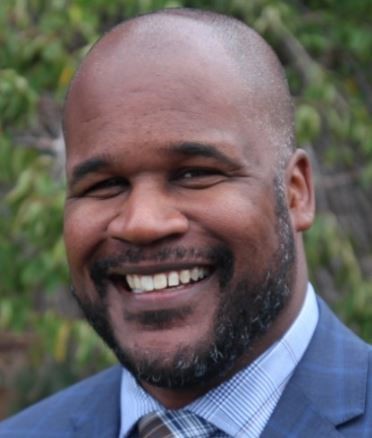 Change is inevitable. Either you change or everything changes around you. If you
want to make things better, you have to change.
Change is inevitable. Either you change or everything changes around you. If you
want to make things better, you have to change.
Effective change management within higher education depends on the proper identification and utilization of areas of strength to assist in the change process. Diversity, Equity and Inclusion is a cornerstone of strength that, when properly implemented, brings everyone together to work as a team, fosters personal growth, supports continuous improvement and contributes towards the organization’s success.
The northeast integration’s division of Diversity, Equity and Inclusion (DEI) has been proactively supporting the necessary changes today to make tomorrow better. The DEI departments at Bloomsburg University, Lock Haven University and Mansfield University have been engaged in interactive discussions to build the foundation that will support strategic partnerships and identify best practices within DEI programming within the new university structure post integration. This collaborative teamwork approach has encouraged a continuous improvement mindset to begin raising the bar and setting the new standard for campus DEI initiatives at each campus in the new university structure. This sharing of information and ideas has been the baseline of innovative thinking of new opportunities to build stronger and inclusive living and learning communities on each campus. This new approach of “out of the box” thinking across the three campuses has begun to have positive impacts on each campus as our students, faculty and staff have participated in multi-campus training events and DEI activities that were previously conducted independently. Moving ahead, the DEI team across all three campuses has started to look at strategic coordination of resources and services to increase intercampus connections to support long-range DEI initiatives as the northeast integration begins to move towards completion.
As we move forward within this initial integration process for the northeast region of universities, the leadership and courage of all three campuses will be required in order to build a better tomorrow. As we become an industry standard within higher education for this type of change management process, the value-added contributions from DEI will be a cornerstone of strength in making things better for everyone!
Western Integration DEI Update: California, Clarion and Edinboro Universities
By Terrence A. Mitchell, Ph.D., Vice President for Diversity, Equity, and Inclusion
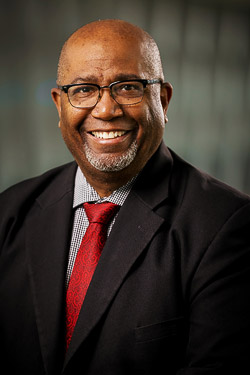 The western integration’s Diversity, Equity and Inclusion (DEI) Functional Implementation
Team (FIT) has been working these past months on plans to launch a DEI administrative
unit for the newly integrated universities, California, Clarion and Edinboro. The
FIT team has worked on projects and plans that will inform the first years of the
unit’s work. More than 40 faculty and administrators from the three campuses worked
together to establish priorities and identify possibilities for the new unit. Subcommittees
were established by members of the DEI FIT Team core to build plans for the new unit.
Sheleta Camarda-Webb, Interim Chief Diversity, Equity and Inclusion Officer at California
University, works with the Professional Development and Frederick Douglass Initiative
Support subcommittee members. Rogers Laugand III, Director for Multicultural Affairs
and Diversity Education at Clarion, works with the DEI Student Support subcommittees
and their associated committees. Those sub-subcommittees are ACCESS programs (Dr.
Joseph Croskey, Assistant Professor, Student Success Center, Clarion, and Ariel Phillips,
Assistant Director of Admissions, Multicultural Recruitment, Edinboro), Enrollment
Management (Isaac Leonard, Assistant Director of Admissions, Multicultural Recruitment
at Clarion) and Special Programs, which Rogers also chairs. Amy Salsgiver, Director,
Social Equity and Title IX, Clarion, works with the Title IX/Social Equity subcommittee.
All have contributed countless hours identifying our strengths, challenges, and opportunities
as we build a new university.
The western integration’s Diversity, Equity and Inclusion (DEI) Functional Implementation
Team (FIT) has been working these past months on plans to launch a DEI administrative
unit for the newly integrated universities, California, Clarion and Edinboro. The
FIT team has worked on projects and plans that will inform the first years of the
unit’s work. More than 40 faculty and administrators from the three campuses worked
together to establish priorities and identify possibilities for the new unit. Subcommittees
were established by members of the DEI FIT Team core to build plans for the new unit.
Sheleta Camarda-Webb, Interim Chief Diversity, Equity and Inclusion Officer at California
University, works with the Professional Development and Frederick Douglass Initiative
Support subcommittee members. Rogers Laugand III, Director for Multicultural Affairs
and Diversity Education at Clarion, works with the DEI Student Support subcommittees
and their associated committees. Those sub-subcommittees are ACCESS programs (Dr.
Joseph Croskey, Assistant Professor, Student Success Center, Clarion, and Ariel Phillips,
Assistant Director of Admissions, Multicultural Recruitment, Edinboro), Enrollment
Management (Isaac Leonard, Assistant Director of Admissions, Multicultural Recruitment
at Clarion) and Special Programs, which Rogers also chairs. Amy Salsgiver, Director,
Social Equity and Title IX, Clarion, works with the Title IX/Social Equity subcommittee.
All have contributed countless hours identifying our strengths, challenges, and opportunities
as we build a new university.
Most importantly, Dr. Dale Pehrsson, president at Clarion and interim president at California and Edinboro Universities, made her first action toward building the unit with the appointment of a Vice President for Diversity, Equity and Inclusion, Dr. Terrence Mitchell, who had previously served as the Chief Diversity and Inclusion Officer at Edinboro. Since his appointment, Mitchell has worked with the FIT team members and others to propose the makeup of the new division that will begin work in January, with responsibilities for Title IX, Social Equity, DEI Student Support, Cultural Centers, and Assessment among other responsibilities. As the team worked on their plans, they were informed by presentations from national content experts to ensure that they are in alignment with best practices and higher education trends. Dr. Damon A. Williams, author of Strategic Diversity Leadership discussed best practices; Dr. Carl Moore, Jr. shared his expertise in inclusive classroom strategies; and Dr. Melinda Q. Brennan educated the group about the importance of including intersectionality in considerations in DEI planning for the future. A conversation with Dr. Denise Pearson, PASSHE Vice Chancellor for Diversity, Equity and Inclusion, helped broaden our understanding of PASSHE system initiatives. Finally, Dr. Lenore Pearlstein, Owner of Potomac Publishing, Inc., and publisher of INSIGHT Into Diversity magazine, discussed our integration with Dr. Dale Pehrsson and Mitchell to keep abreast of our work. The new DEI unit will capitalize on the best of the work being done on the individual campuses and scale up these efforts to maximize the DEI experiences of our students, faculty, staff, alumni, and local communities. Stay tuned as we share more information soon about the staff of the new unit. For more information, contact Dr. Terrence Mitchell at tamitchell@edinboro.edu.
WCU Earns Second Higher Education Excellence in Diversity (HEED) Award
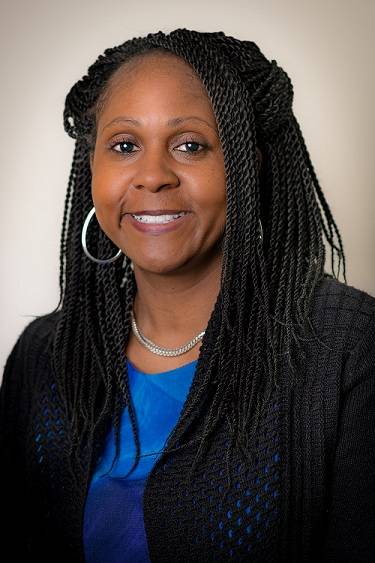 In 2021, West Chester University was selected for the second consecutive year to receive
the Higher Education Excellence in Diversity (HEED) Award from
INSIGHT Into Diversity magazine, the oldest and largest diversity-focused publication in higher education. WCU earned this honor for the first time in 2020, along with 89 other recipients.
This year, 101 colleges and universities across the U.S. and Canada were selected. The HEED award measures an institution’s level of achievement and intensity of commitment
regarding broadening diversity and inclusion on campus through initiatives, programs,
and outreach; student recruitment, retention, and completion; and hiring practices
for faculty and staff. West Chester and the other award recipients are featured in
the November 2021 issue of
INSIGHT Into Diversity magazine.
In 2021, West Chester University was selected for the second consecutive year to receive
the Higher Education Excellence in Diversity (HEED) Award from
INSIGHT Into Diversity magazine, the oldest and largest diversity-focused publication in higher education. WCU earned this honor for the first time in 2020, along with 89 other recipients.
This year, 101 colleges and universities across the U.S. and Canada were selected. The HEED award measures an institution’s level of achievement and intensity of commitment
regarding broadening diversity and inclusion on campus through initiatives, programs,
and outreach; student recruitment, retention, and completion; and hiring practices
for faculty and staff. West Chester and the other award recipients are featured in
the November 2021 issue of
INSIGHT Into Diversity magazine.
INSIGHT Into Diversity magazine selected West Chester University because of its demonstrated resolve and innovative initiatives. Some key programs include:
- Ram Shop: WCU is the first university in the country to open an on-campus convenience store, the Ram Shop, to provide workplace training for autistic students to practice and master social and professional skills. The Ram Shop works in partnership with the University’s growing Dub-C Autism Program. Beyond graduation, the University is working to ensure that the students are able to gain employment. This initiative intends to address the statistic that nationally 85 percent of college graduates with autism are unemployed.
- Alpha Alpha Alpha: WCU established during the 2020-2021 academic year a new chapter of an honor society for first-generation college students: Alpha Alpha Alpha (Tri-Alpha). Of nearly 170 eligible WCU students, 56 were inducted for this inaugural cohort. Students qualify for induction into Tri-Alpha by earning at least 30 credit hours toward a baccalaureate degree and achieving an overall undergraduate GPA of at least 3.2. First-generation graduate students must have completed the equivalent of at least one term (9 or more graduate credits) and have a GPA in their graduate program of at least 3.5.
- WCU Resource Pantry: The University’s Resource Pantry supports student success by minimizing food and basic need security and preparing students for life after graduation. Since 2016, it has partnered with the local county food bank, individuals, and other organizations. The Pantry operates five days a week during the academic year and three days a week over the summer and winter breaks, providing food (both non-perishable and fresh produce donated from the WCU campus gardens), personal care items, school supplies, and career clothing. The Resource Pantry also offers programs throughout the school year, including financial literacy workshops and cooking demonstrations.
“The HEED Award demonstrates engagement in an array of best practices, in addition to innovation and a collective commitment to diversity, equity, and inclusion,” said West Chester University Chief Diversity and Inclusion Officer Tracey Robinson. “We are so proud to receive this national recognition for the second time. Diversity is broadly defined, and this award recognizes how individuals across the University go the extra mile.”
Building a Geoscience Field Learning Ecosystem for the Pennsylvania State System of Higher Education
By Jonathan C. Lewis, Professor of Geography, Geology, Environment and Planning, Indiana University of Pennsylvania
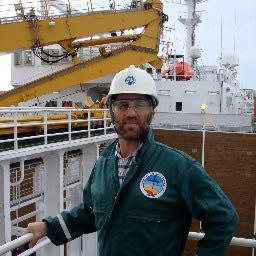 The population of Pennsylvania is rapidly becoming more diverse, and many communities
have legacy environmental challenges, including some with health implications. At
the same time, the geoscience community that is trained to address such challenges
is not diverse, and its experts are not well distributed among our diverse communities.
A new National Science Foundation-supported project aims to address these challenges.
What are we doing? A team of geoscientists from Indiana, Edinboro, Kutztown, Shippensburg,
California, West Chester, Millersville, Mansfield, and Slippery Rock put their heads
together to envisage a 6-credit Summer Geology Field Class that will be available
to all PASSHE geoscience students, and that will serve as the backbone of a PA Geoscience
Field Learning Ecosystem. How bad is the geoscience ‘”homogeneity problem?“ Based
on Ph.D. attainment, the geoscience community in the U.S. has been described as the
least diverse among STEM disciplines (Bernard and Cooperdock, 2018, Nature Geoscience).
There is reason for hope. Beane et al., (2021, Nature Communications Earth & Environment)
show that from 1998 to 2018 the proportion of Hispanic/Latino people earning bachelor’s
degrees has improved from 3 percent to 10 percent, the largest positive shift among
historically excluded populations. During this time the proportion of White people
earning bachelor’s degrees in geoscience moved from 90 percent to 76 percent (Beane
et al., 2021). This progress for the Hispanic/Latino community is driven by only a
handful of universities. What are the implications? Here in Pennsylvania, we see demographic
shifts that highlight the opportunity to broaden participation in meaningful geoscience
work. In particular, census data from 2015-2018 show the age category 10-14 changing
by +24,127 for Latinx people, +8,177 for Black non-Hispanic people and -6,542 for
White non-Hispanic people (H. Molina, 2020, pers. comm.). Clearly the Commonwealth
is poised for substantial demographic change. Meanwhile Pennsylvania is host to myriad
challenges in all parts of the state, from brownfields to superfund cleanups, and
from hydraulic fracturing to watershed health. Many of these challenges are more acute
in communities of color, so training a more diverse geoscience workforce is a high
priority. How do we do this? We aim to develop relationships with high school teachers
and local professional geologists to host outreach events in diverse communities as
part of our class. The events would be partly facilitated by our undergraduate Geology
Field Class students and will also serve to connect our faculty to high school teachers
and local professionals. The goal of these events will be to showcase inspiring technologies
and capabilities for addressing problems that resonate with the high school students,
and to highlight the many meaningful career paths that geoscience provides. The class
will be run every Summer and will span the Commonwealth, serving as a core institutional
component of our burgeoning Geoscience Learning Ecosystem. It will also showcase system
behavior in PASSHE leveraging faculty strengths and campus assets to provide exceptional
learning opportunities for training future problem solvers using the world-class geology
of Pennsylvania.
The population of Pennsylvania is rapidly becoming more diverse, and many communities
have legacy environmental challenges, including some with health implications. At
the same time, the geoscience community that is trained to address such challenges
is not diverse, and its experts are not well distributed among our diverse communities.
A new National Science Foundation-supported project aims to address these challenges.
What are we doing? A team of geoscientists from Indiana, Edinboro, Kutztown, Shippensburg,
California, West Chester, Millersville, Mansfield, and Slippery Rock put their heads
together to envisage a 6-credit Summer Geology Field Class that will be available
to all PASSHE geoscience students, and that will serve as the backbone of a PA Geoscience
Field Learning Ecosystem. How bad is the geoscience ‘”homogeneity problem?“ Based
on Ph.D. attainment, the geoscience community in the U.S. has been described as the
least diverse among STEM disciplines (Bernard and Cooperdock, 2018, Nature Geoscience).
There is reason for hope. Beane et al., (2021, Nature Communications Earth & Environment)
show that from 1998 to 2018 the proportion of Hispanic/Latino people earning bachelor’s
degrees has improved from 3 percent to 10 percent, the largest positive shift among
historically excluded populations. During this time the proportion of White people
earning bachelor’s degrees in geoscience moved from 90 percent to 76 percent (Beane
et al., 2021). This progress for the Hispanic/Latino community is driven by only a
handful of universities. What are the implications? Here in Pennsylvania, we see demographic
shifts that highlight the opportunity to broaden participation in meaningful geoscience
work. In particular, census data from 2015-2018 show the age category 10-14 changing
by +24,127 for Latinx people, +8,177 for Black non-Hispanic people and -6,542 for
White non-Hispanic people (H. Molina, 2020, pers. comm.). Clearly the Commonwealth
is poised for substantial demographic change. Meanwhile Pennsylvania is host to myriad
challenges in all parts of the state, from brownfields to superfund cleanups, and
from hydraulic fracturing to watershed health. Many of these challenges are more acute
in communities of color, so training a more diverse geoscience workforce is a high
priority. How do we do this? We aim to develop relationships with high school teachers
and local professional geologists to host outreach events in diverse communities as
part of our class. The events would be partly facilitated by our undergraduate Geology
Field Class students and will also serve to connect our faculty to high school teachers
and local professionals. The goal of these events will be to showcase inspiring technologies
and capabilities for addressing problems that resonate with the high school students,
and to highlight the many meaningful career paths that geoscience provides. The class
will be run every Summer and will span the Commonwealth, serving as a core institutional
component of our burgeoning Geoscience Learning Ecosystem. It will also showcase system
behavior in PASSHE leveraging faculty strengths and campus assets to provide exceptional
learning opportunities for training future problem solvers using the world-class geology
of Pennsylvania.
Meet Dr. Emily Howe, Manager of Special Projects, Research, and Reporting in the Office of the Chancellor
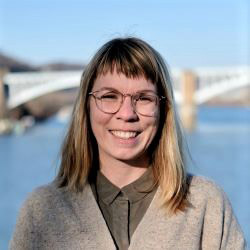 My name is Emily Howe, and I joined the Office of DEI on September 27, 2021 as the
Manager of Special Projects, Research, and Reporting. Prior to joining PASSHE, I attended
the University the Pittsburgh, receiving a PhD in Learning Sciences and Policy. In
my doctoral studies, I focused on sociopolitical dimensions of teaching, learning,
and educational systems. My interest in these topics stems from my experiences as
a high school special education teacher in the New York City Public Schools and as
a student in public schools in Cumberland County, North Carolina.
My name is Emily Howe, and I joined the Office of DEI on September 27, 2021 as the
Manager of Special Projects, Research, and Reporting. Prior to joining PASSHE, I attended
the University the Pittsburgh, receiving a PhD in Learning Sciences and Policy. In
my doctoral studies, I focused on sociopolitical dimensions of teaching, learning,
and educational systems. My interest in these topics stems from my experiences as
a high school special education teacher in the New York City Public Schools and as
a student in public schools in Cumberland County, North Carolina.
In my research, I’ve examined how and why educational policies are contested by different stakeholders and what the implications of these public debates are. I have also studied teacher education and the complex ways in which teachers are constrained by and/or can perpetuate oppressive knowledge systems in their practice.
I’m excited to join PASSHE and the Office of DEI because of the opportunity to support people and groups in making sustainable and structural changes that support more just and equitable spaces across the State System. I believe that the work of creating just educational spaces is ongoing and collective and must be grounded in building relationships that are responsive to the needs and interests of our communities--particularly communities and groups that have been historically excluded from higher education.
Outside of research and education, I also enjoy: taking walks; gardening; trying new restaurants; reading; baking; doing embroidery; and hanging out with my cat, Ida. I currently live in Pittsburgh, PA and am excited to get to know you all and to support collaborations throughout PASSHE. You can reach me at ehowe@passhe.edu.